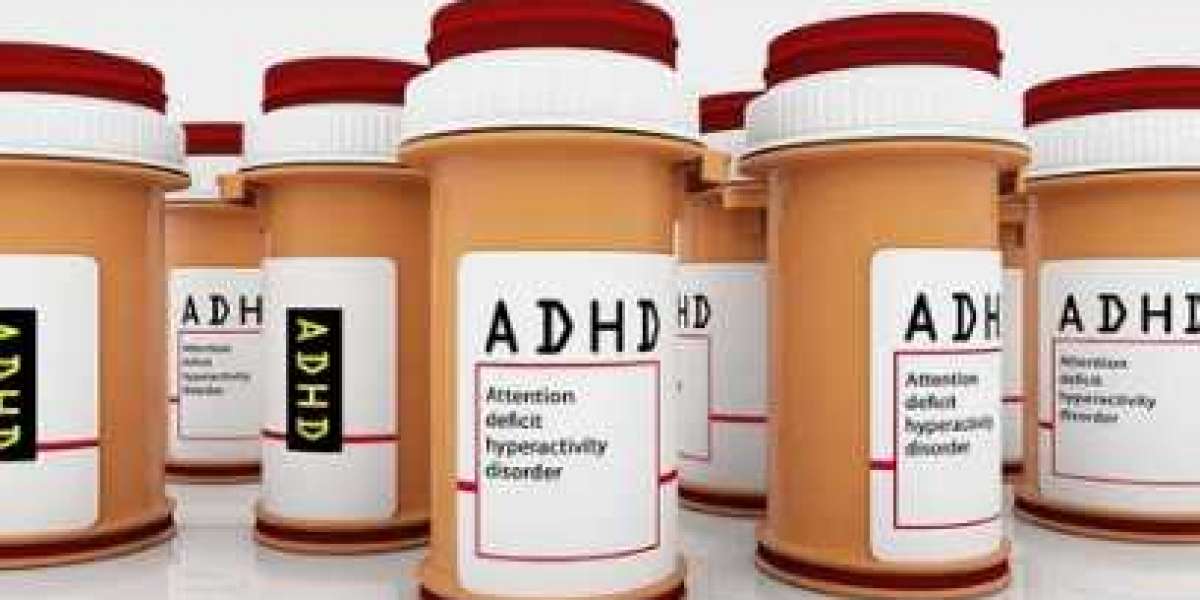Attention-Deficit/Hyperactivity Disorder (ADHD) affects millions of children, teens, and adults across the world, impacting focus, behavior regulation, emotional control, and overall daily functioning. As research advances and awareness grows, treatment options have evolved significantly. Today, individuals can benefit from a combination of scientifically proven medications, holistic therapies, lifestyle adjustments, and personalized support systems. This blend of modern solutions is often referred to as contemporary care for ADHD.
Among these strategies, medications for ADHD remain a cornerstone of effective management. But the landscape of medication options has changed dramatically in recent years, offering safer, more targeted, and longer-lasting treatments. If you or someone you love is exploring ADHD treatment, understanding modern medication choices and how they fit into contemporary care is essential.
Understanding ADHD and the Role of Medication
ADHD is a neurodevelopmental condition characterized by patterns of inattention, hyperactivity, impulsivity, or a combination of these symptoms. Because ADHD affects the brain’s executive function system—responsible for focus, impulse control, working memory, and organization—medications can play a crucial role in improving these processes.
Medication doesn’t cure ADHD, but it helps regulate brain chemicals like dopamine and norepinephrine, allowing individuals to think more clearly, stay on task, and manage behaviors more effectively. In contemporary care, medications are paired with behavioral therapy, coaching, educational support, nutrition plans, and mindfulness practices to create a well-rounded approach.
Types of Medications for ADHD
Modern ADHD treatment includes two main categories of medication: stimulants and non-stimulants. Both have been extensively researched and are considered safe when prescribed and monitored by a medical professional.
- Stimulant Medications
Stimulants are the most commonly prescribed and the most effective medications for ADHD. They have been used for decades and are well understood by clinicians.
How they work
Stimulants increase dopamine and norepinephrine levels in the brain, enhancing focus, motivation, and impulse control.
Common Stimulant Medications
- Methylphenidate-based medications
Examples: Ritalin, Concerta, Focalin, Metadate
These work quickly and come in short-, intermediate-, and long-acting versions. - Amphetamine-based medications
Examples: Adderall, Vyvanse, Dexedrine
Known for longer duration and strong effectiveness, especially for individuals with severe symptoms.
Benefits in contemporary care
Stimulants are often the first line of treatment in modern ADHD care due to:
- Strong symptom reduction
- Fast onset (often within 30–60 minutes)
- High success rate (70–80% of patients respond well)
Modern care plans often rely on extended-release versions, which provide smoother, all-day symptom management with fewer side effects and reduced risk of misuse.
- Non-Stimulant Medications
For individuals who do not respond well to stimulants or experience significant side effects, non-stimulant medications offer an essential alternative in contemporary ADHD treatment.
Common Non-Stimulant Options
- Atomoxetine (Strattera): Increases norepinephrine; helpful for those with anxiety co-occurring with ADHD.
- Guanfacine (Intuniv): Useful for emotional dysregulation, irritability, and impulsivity.
- Clonidine (Kapvay): Often prescribed for hyperactivity and sleep issues.
Why Non-Stimulants Matter in Contemporary Care
- Lower risk of misuse or dependency
- Longer-lasting symptom control
- Often preferred for patients with cardiovascular concerns, anxiety, or sleep problems
In modern care models, non-stimulants are sometimes combined with stimulants for enhanced symptom management.
Contemporary Care: A Modern Approach to ADHD Treatment
While medication remains a foundational part of ADHD care, contemporary treatment emphasizes a more holistic, individualized strategy. This approach recognizes that ADHD is not the same for everyone—and neither is the path to managing it.
Here’s how contemporary care integrates medications with broader support:
- Personalized Treatment Plans
Modern clinicians tailor medication types, doses, and schedules based on:
- Age
- Symptom severity
- Co-existing conditions (anxiety, depression, learning differences)
- Lifestyle and daily routines
- Work, school, or home responsibilities
This personalized approach leads to better outcomes and fewer side effects.
- Combining Medication with Therapy
Medications treat the neurological side of ADHD, while therapy addresses the behavioral and emotional components. Contemporary care often includes:
- Behavioral therapy
- Cognitive Behavioral Therapy (CBT)
- ADHD coaching
- Social skills training
- Parent-training programs
Combining medication with therapy improves long-term functioning and emotional resilience.
- Incorporating Educational and Workplace Support
Modern ADHD treatment considers how symptoms affect daily performance. Support may include:
- School accommodations (IEPs, 504 plans)
- Time-management tools
- Task breakdown techniques
- Workplace adjustments
- Digital apps that improve organization and focus
These tools enhance the benefits of medications and empower individuals to succeed independently.
- Lifestyle and Wellness Integration
Contemporary care also recognizes the influence of lifestyle habits on ADHD symptoms. Many providers incorporate:
- Nutrition guidance
- Sleep optimization
- Exercise routines
- Mindfulness and meditation
- Screen-time management
Research shows that exercise and adequate sleep can significantly improve focus and behavior—especially when combined with medication.
Choosing the Right Medication for ADHD
Selecting the right medication involves understanding how symptoms show up in everyday life. Patients and caregivers should consider:
- Symptom patterns
- Duration of effects needed
- Potential side effects
- Lifestyle compatibility
- Whether a child or adult needs full-day coverage
- Personal response to medication trials
Modern ADHD care often involves trial periods where doctors adjust doses or switch medications to find the best fit. Regular communication with a healthcare provider ensures ongoing effectiveness and safety.
The Future of ADHD Medication and Treatment
Advancements in neuroscience continue to shape how ADHD is understood and treated. New research is exploring:
- Digital therapeutics
- Precision-based medication matching
- Improved long-acting formulations
- Non-pharmaceutical brain training technologies
The direction of contemporary care leans heavily toward more personalized, accessible, and comprehensive treatment models, giving individuals more control and support than ever before.
Final Thoughts
When it comes to managing ADHD, medications for ADHD play a critical role in improving focus, behavior, memory, and overall daily functioning. But today’s best outcomes come from combining medication with a holistic, customized care plan rooted in contemporary care.
Whether you’re seeking treatment for yourself or a loved one, exploring a modern approach that integrates medication with therapy, lifestyle support, and personalized planning can provide the most effective and empowering results.














